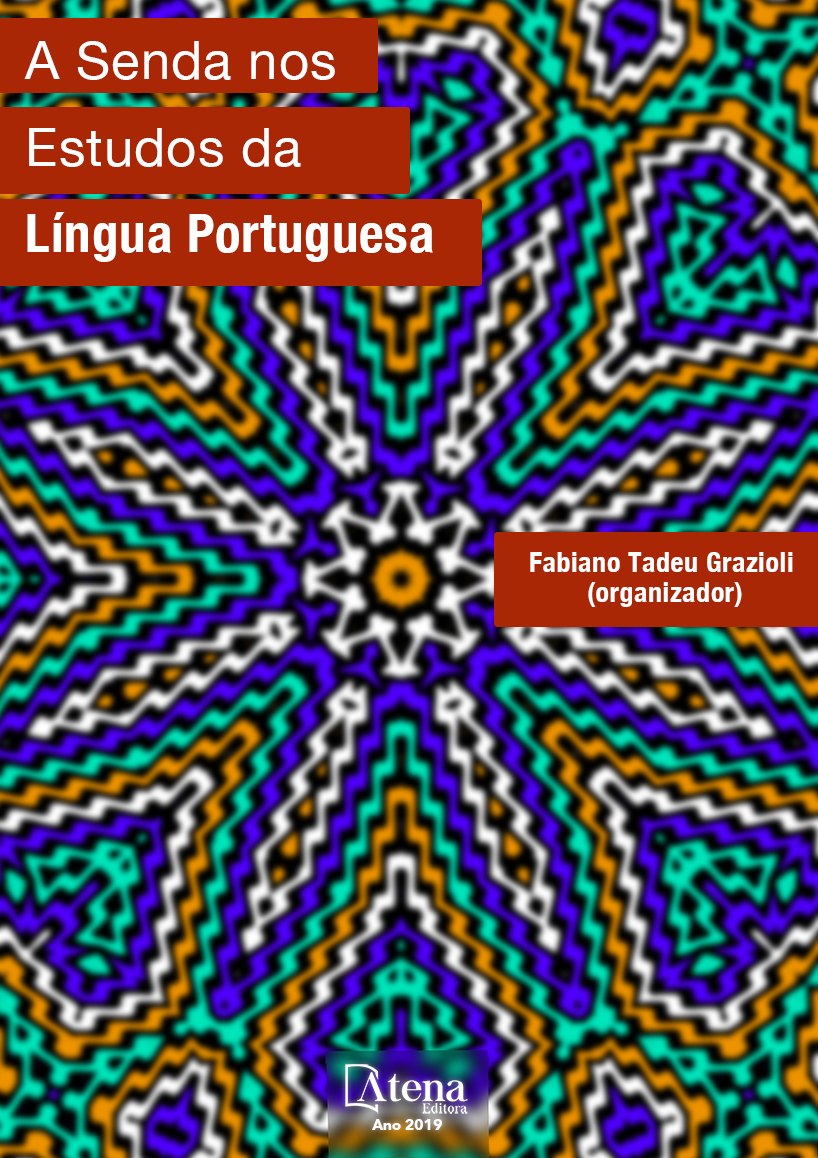
UM ESTUDO DISCURSIVO DO LÉXICO EM O EMPATE, DE FLORENTINA ESTEVES
Este trabalho tem como objetivo
fazer uma análise do léxico, numa abordagem
discursiva, investigando as lexias que podem
ser típicas da fala do homem acreano, no
contexto do romance O Empate, de Florentina
Esteves, uma escritora acreana. Para a análise,
considerou-se que as narrativas produzidas na
Amazônia, especificamente no Acre – Brasil,
são permeadas de unidades lexicais utilizadas
com maior frequência nessa região, que
se constituem como herança da época dos
seringais e das migrações. O embasamento
teórico é constituído pelos conceitos de léxico
e Lexicologia de acordo com Biderman (2001),
articulados às teorias da Análise do Discurso
conforme Pêcheux (1995, 1997), considerando
os conceitos de formação discursiva e efeitos
de sentido. Utiliza-se ainda a Linguística de
Corpus, segundo Berber Sardinha (2004),
para suporte ao trabalho de processamento
do corpus de análise que foi realizado por
meio do software AntConc (ANTHONY, 2014).
A partir disso, foram selecionadas unidades
lexicais de maior destaque, tanto na frequência
quanto na expressividade, verificando sua
recorrência e sentido, como se manifestam
e são representadas no discurso literário. A
partir da compilação dos vocábulos, objetivase
selecionar o léxico específico da região,
que delimita e incorpora suas características
socioculturais. Observou-se, nesta pesquisa,
que algumas das lexias selecionadas
representam o falar do homem local no contexto
apresentado no romance, isto é, o período
da decadência da atividade de extração da
borracha, como se observa, por exemplo, nas
lexias: “poronga”, “lamparina” e “sernambi”, que
compõem o corpus de análise.
UM ESTUDO DISCURSIVO DO LÉXICO EM O EMPATE, DE FLORENTINA ESTEVES
-
DOI: 10.22533/at.ed.92419240711
-
Palavras-chave: Literatura acreana; léxico acreano; análise do discurso.
-
Keywords: Acre literature; Acre lexes; speech analysis.
-
Abstract:
This work aims at analyzing the
lexicon in a discursive approach, investigating
the lexes that may be typical of man’s speech
from Acre, in the context of Florentina Esteves’
novel, O Empate. For the analysis, it was
considered that the narratives produced in
the Amazon, specifically in Acre - Brazil, are
permeated by lexical units used more frequently
in this region, which are inherited from the
time of the rubber plantations and migrations.
The theoretical basis is constituted by the
concepts of lexicon and Lexicology according
to Biderman (2001), articulated to the theories of Discourse Analysis according to
Pêcheux (1995, 1997), considering the concepts of discursive formation and meaning
effects. Corpus Linguistics, according to Berber Sardinha (2004), is used to support the
work of processing the corpus of analysis that was performed using AntConc software
(ANTHONY, 2014). From this, we selected lexical units of greater prominence, both in
frequency and expressivity, verifying their recurrence and sense, as they are manifested
and represented in the literary discourse. From the compilation of the words, it is
aimed to select the specific lexicon of the region, which delimits and incorporates its
sociocultural characteristics. It was observed in this research that some of the selected
lexes represent the local man’s speech in the context presented in the novel, that is to
say, the period of decay of the rubber extraction activity, as seen, for example, in lexes:
“poronga”, “lamparina” and “sernambi”, which make up the corpus analysis.
-
Número de páginas: 15
- EDILENE DA SILVA FERREIRA


